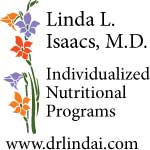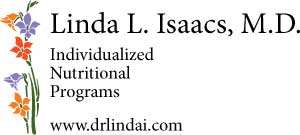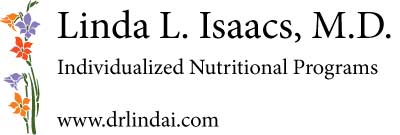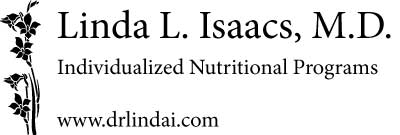Thoughts on the Ketogenic Diet
Linda L. Isaacs, M.D.
My long-time colleague, the late Nicholas Gonzalez, MD, and I based our nutritional recommendations on the work of William Donald Kelley, DDS. Dr. Kelley deduced from his clinical experience that different patients needed different diets. One patient might be told to eat a wide array of vegetables, along with whole grain products, fruit, eggs, dairy, and fish, but no red meat or poultry. A different patient could have fatty red meat, lots of butter and root vegetables, but minimal grains and no fruit or leafy greens. Other patients might be given dietary recommendations in between these two extremes. All diets included vegetable juice made predominantly from carrots, lots of vegetables, and the use of unprocessed and unrefined organic foods.
Patients with carcinomas (including the most common types of cancer such as lung, breast, colon, or prostate) would typically be advised to eat a more alkalinizing, vegetarian diet, while patients with lymphomas and leukemias would be placed on a higher fat, higher protein, acid-forming diet.
Dr. Gonzalez found that Dr. Kelley got amazing results, as detailed in his book One Man Alone: An Investigation of Nutrition, Cancer, and William Donald Kelley (affiliate link). As we recreated Dr. Kelley's work, we also recommended different diets to different people, along with detoxification routines and individualized nutritional supplementation. Our clinical experience encouraged us to continue with this approach, as shown in our published article with 30 case reports.
Over the many years that Dr. Gonzalez and I worked together, many theories and diets have come and gone in the nutritional world. Most stem from the convictions of various experts that everyone should eat the same thing.
The ketogenic diet, with lots of fat but minimal to no carbohydrates, has been widely publicized in some circles as a diet beneficial for all cancer patients. The phrase “cancer feeds on sugar” has frightened many people into giving up not only white sugar and white flour, but also carrots, whole grains, and other foods that had previously been considered healthy.
The patients described in our articles and books all drank carrot juice and ate whole grain products. Wholesale elimination of carbohydrates wasn’t necessary for any of them. Cancer cells use nutrients from the blood supply, and it isn’t possible to get the blood sugar low enough to “starve” the cancer. A number of physiologic mechanisms keep blood sugar (glucose) in the normal range. If no carbohydrates are taken in, dietary protein can be used to make glucose; if no protein is eaten, protein from the muscles can form glucose.
Restricting carbohydrates does prevent the elevation in insulin that is triggered by carbohydrate intake, especially by foods containing white flour and white sugar, foods I do not recommend for anyone. Insulin spikes can stimulate cell growth; insulin spikes are more common in overweight and obese patients. These patients should certainly take more care with their carbohydrate intake, but that does not mean they should eliminate this class of foods entirely.
Intermittent fasting, fasting between dinner and breakfast the following morning, creates an 11-12 hour window during which the gut can clean itself out. This may create a brief period of ketosis every day; it is certainly more typical of how our ancestors ate. Modern technology and readily available packaged and refined foods make it possible to spend the evening watching a movie or surfing the Internet while munching snack foods and drinking sugary beverages. This is not good for health.
There are some cancer patients that I believe could do well on a ketogenic diet. These patients have diseases such as leukemia, lymphoma, multiple myeloma, melanoma, and sarcoma, and I would routinely recommend a high protein, high fat diet for these conditions (not quite a ketogenic diet, but closer than what I would suggest for other patients). Most of the interesting anecdotes about the ketogenic diet for cancer involve these categories. But the bulk of the testimonials about the ketogenic diet are poorly documented, short term, and/or by patients who were also receiving conventional treatment. None of what has been published to date has been persuasive enough to cause change in my recommendations.




